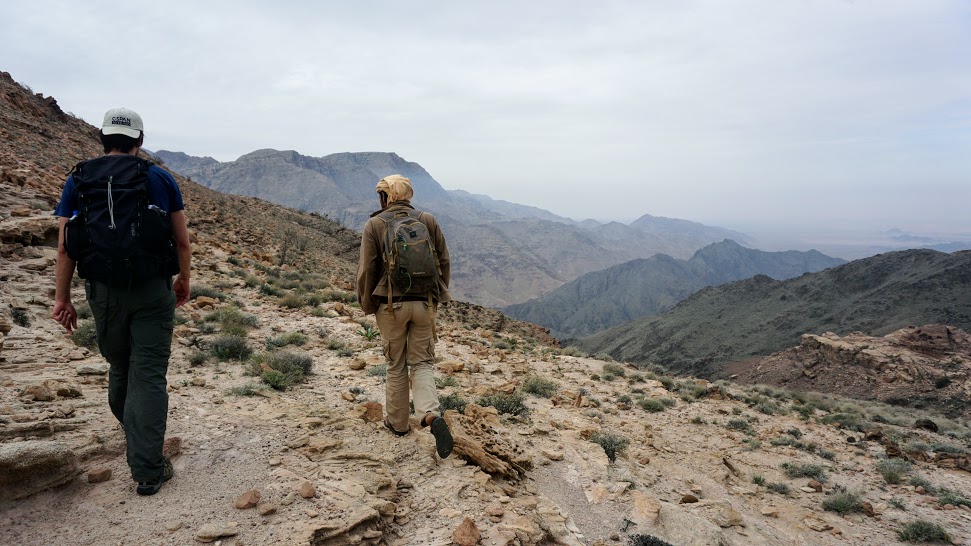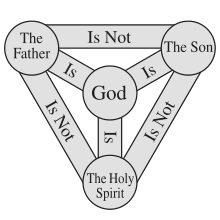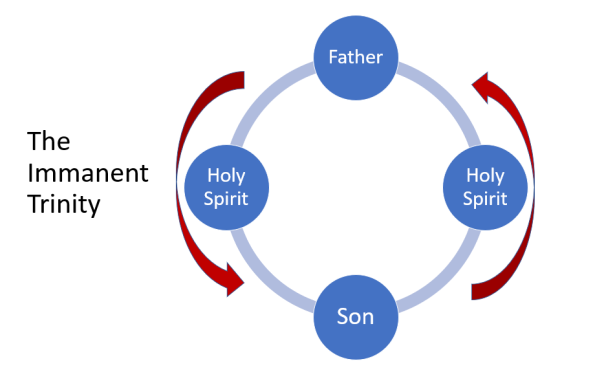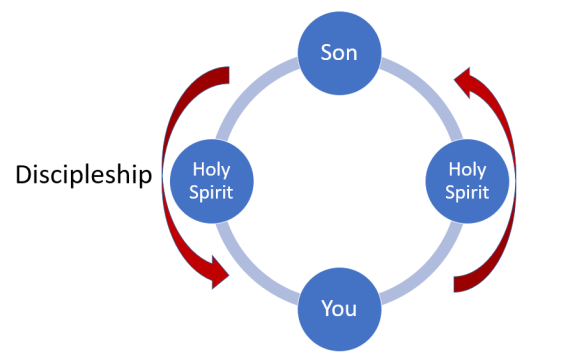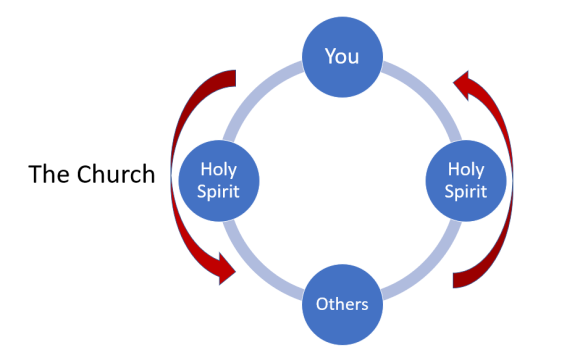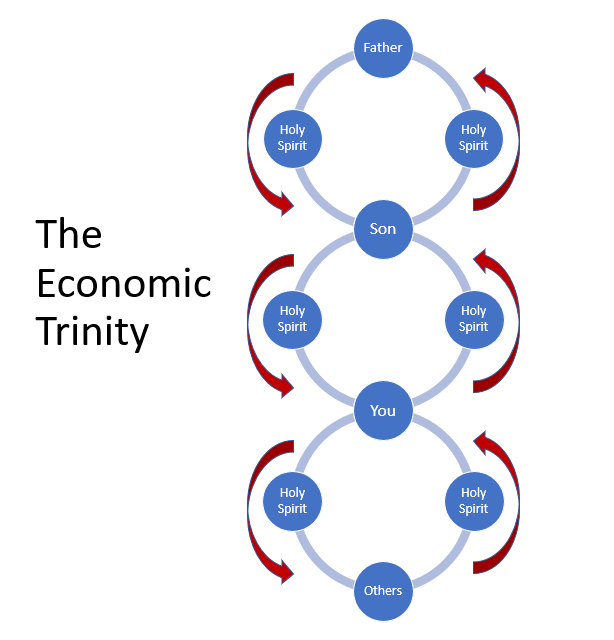*Sermon above. Text of Sermon below*
The Parable of The Dishonest Manager basically goes like this:
There was a really rich guy who heard a rumor that the manager of his estate was wasting his money. He decided to fire him, but before having security escort him from the premises, he told the manager to go by himself to retrieve all the confidential financial information. The manager, like a failed preacher, had no other job prospects.
He was desperate to keep his job. So he did the only reasonable thing he could to impress his boss: he manipulated the books lowering the amount his debtors owed the rich guy significantly lowering the rich guy’s profits. After discovering this, the rich guy thought, “Wow! What a great manager!” and decided to keep him. Then Jesus told his disciples to maybe act like the manager because a life centered on money is bad.
Great story Luke.
The previous story is the Parable of the Prodigal Son which may just be the best story in the Bible. The story that follows is The Rich Man and Lazarus, another all-star level story that has everything from rich people being condemned to hell for the crime of being rich and wild dogs on the verge of eating people because they’re poor.
It’s tough company, but the Parable of the Dishonest Manager makes up for it by being the weirdest, most confusing parable in the New Testament.
I could spend lots of time here breaking down the economic and political issues at play. And I did, but after meticulously going through the background and multiple competing analyses and writing up my interpretation, the document on my laptop was corrupted and I lost everything.
I spent the next 24 hours crying about it AND I couldn’t go outside to buy snacks.
I planned on a shorter version. It got even longer. Much of the background and economic info here is based on William Herzog’s Parables as Subversive Speech, of which I am obsessed. Enjoy.
Background
On an estate like the one we see in the Parable of the Dishonest Manager, peasants work the land of rich landowners. Rich guys who prefer to live in the city hire managers to handle their affairs.
Managers write contracts, collect money, and threaten people. The best managers are people who understand the culture of peasants but can also read, write, and keep track of finances.
So rich guys identify a promising peasant, invest tons of money into him, make him completely reliant on their patronage, and turn him against other people in their social class. The manager, after betraying his own people, can never return to his community and must faithfully serve his master for life.
The wealthy turn hatred of the rich into a weapon against the poor.
The manager makes money by taking an under the table cut on each deal. Everybody expects this. If he takes too much, he risks upsetting his master and losing his job. If he doesn’t take enough, well, then there’s no point in being a manager.
The upside to being hated by everyone and being isolated from your community is money – lots and lots of money.
Peasants hate managers. Managers take what peasants think belongs to them and betray their own people. Peasants barely have enough to survive as it is.
Landowners distrust managers. They always think the managers are cheating them. They’re usually right.
Managers fear everyone. When he receives a generous bribe from a peasant, the manager will negotiate a better deal. But if he demands too much, the peasants will start rumors and the rich landowner may fire him. Being fired is a death sentence. After a year or two, the manager will be certainly be dead. There are no competing job offers.
Managers fired for wasting money will never be hired by any other rich landowner because the entire point is to make managers completely reliant on their masters. The existence of alternative options ruins the whole scheme.
His only other options are digging and begging. He cannot dig. Managers are not manual laborers. He has neither the strength nor the skills. He cannot beg. A fired manager is a traitor to his people. He inspires no sympathy. Soon enough, malnutrition, disease, or violence will claim his life. He will die alone and in great pain.
The only real option is to keep his job.
The Manager’s Plan
Many interpretations, like my own Harper Collins Study Bible, argue that the manager reduces his own cut to ingratiate himself to his master or to the peasants. This is a terrible interpretation. It’s absolutely impossible.
The parable tells us that the manager summoned the debtors, one by one, reducing the debt to each. One man owed 100 jugs of olive oil. His bill was reduced by 50% to 50 jugs. Another man owed 100 bushels of wheat. His bill was reduced by 20% to 80 bushels. An interpretation that claims the manager is reducing his own cut would have to assume a preposterous 100% commission.
But a bigger problem is that the manager reduces the bill in the books. The manager’s cut is under the table. An interpretation that the manager is cutting out his own commission must assume that the manager has also documented his own crime which is especially problematic given that a 100% commission is so ridiculous. If losing his job is a death sentence, why document the justification for being fired?
This interpretation does not even attempt to explain why he would he reduce one bill by 50% and another by 20%. Luckily, there are a better options.
Oil is a more risky investment than wheat given that oil is far more likely to spoil and more difficult to transport and store. Given this, a 50% and 20% reduction of oil and wheat respectively is best explained as the manager removing interest which corresponds to the level of risk for each product. Profits from interest go to the owner of the debt, not the manager.
Interest is, of course, unlawful in Jewish society. Charging interest is one of the most flagrant violations of Jewish law. So if you want to charge interest, it needs to be hidden yet remain enforceable.
Luke 16 shows a common tactic in hiding interest by including it in the total amount of the bill rather than as a separate line item. Besides the owner, only the manager who writes the contracts can prove that interest is owed.
Cutting out the interest payment isn’t charity. Cutting interest is a threat to his boss. Interest is unlawful and the manager is threatening to expose him. The rich landowner can either accept the public praise of the peasants for being so generous by lowering their debt or he can be exposed for charging interest and be known as incapable of controlling his own house.
He chooses praise and recognizes the value of a ruthless, shrewd manager working on his behalf.
In the end, debts are forgiven. Peasants are given a temporary respite from predatory lending and they get to keep more of what belongs to them. The rich landlord is praised by the public for upholding the Torah. The manager is saved from death and brought back into his master’s house.
The Narrative Context
If we read this parable independently from the rest of the Gospel of Luke, it can tell us how the weak can triumph over the strong, and it can provide examples of how the rich oppress the poor.
These are useful lessons that we should hear, but this parable isn’t told in isolation. It’s part of a group of stories that Jesus tells in response to criticism from Pharisees in the beginning of chapter 15.
Luke 15:2: And the Pharisees and the scribes were grumbling and saying, “This fellow welcomes sinners and eats with them.”
Jesus responds by telling four parables. See if you notice a pattern.
1) The Parable of the Lost Sheep: It’s a parable about a shepherd who loses a sheep. He leaves behind 99 sheep to search for the one who was lost. When he finds it, he gathers his friends and they rejoice.
2) The Parable of the Lost Coin: It’s a parable about someone who loses a coin. A woman searches her whole house, finds the lost coin, gathers her friends, and they rejoice.
The first two parables are exact mirrors of each other. By now, Jesus’s response to the criticism of him welcoming sinners and eating with them should be clear. Jesus seeks out the lost. Having made his point, he could have just left it there and walked away, but he keeps going. Why?
3) The Parable of the Prodigal Son: A little more complicated so I’ll outline it here. The theme of seeking out the lost continues.
- The prodigal son squandered his property and his family.
- The prodigal son faces isolation and death.
- The prodigal son schemes so his father will let him rejoin his house.
- The father offers forgiveness and welcomes him back.
- The father’s eldest son rejects the prodigal son as sinful and unworthy of forgiveness.
- The prodigal son faces isolation and death.
- The father’s eldest son squanders his family.
This parable is similar to the previous two in that something is lost, what is lost is found, and the people rejoice. The Parable of the Prodigal Son introduces two new features. First, the son who is lost is at fault. No one blames a sheep or a coin for being lost. But here, being lost and facing isolation and death are entirely the fault of the prodigal son.
Second, there is a third character who does not celebrate the lost being found, and, instead, rejects it. The prodigal son’s older brother does not think his brother deserves forgiveness, which, if we are to be honest, is pretty understandable.
The parable introduces sin and rejection to the previous formula of something is lost, what is lost is found, and the people rejoice.
When this story is read as a response to the Pharisees’ criticism of Jesus, that Jesus is sitting with sinners and eating with them, it becomes apparent that the older brother’s rejection of his brother is comparable to the Pharisees’ rejection of the sinners who sit with Jesus. Like the Pharisees, the older brother follows all the rules, but knows neither forgiveness or love.
Jesus isn’t just telling moralistic stories. Jesus is answering the Pharisees’ criticism with criticism of his own. Having told stories of a lost coin and a lost sheep of which no one could object, he set up the Pharisees in a rhetorical trap.
Once you concede that the shepherd should look for the lost sheep, it becomes harder to claim that God shouldn’t seek out what God has lost. Even though the prodigal son is unworthy of forgiveness, his unworthiness only strengthens the virtue of the father. After all, who can fault a father for loving his children?
The Pharisees have rejected God’s children, but God has not. When God’s children are lost, God finds them.
Jesus still isn’t done. He has one story left. He’s already criticized the Pharisees for rejecting those who are lost. He already caught them in his trap. Who’s left?
4) The Parable of the Dishonest Manager: This parable follows the exact same pattern as the Prodigal Son. It follows the same theme with an identical structure and uses identical language found nowhere else in the new testament: “squandered his property” (Luke 15:13 and 16:1).
Furthermore, it is the last parable in a set of four in which the first two parables are exact mirrors of each other. As a result, we should consider the final two stories similarly linked.
Unlike The Parable of the Prodigal Son, The Parable of the Dishonest Manager does not have a sympathetic patron like the prodigal son’s father (even if the prodigal’s father is a landowning, rich, slave owner). Instead, this story has an absentee landlord who preys upon peasants. But like The Parable of the Prodigal Son, this story has a central character who is lost because he rejected his people for money.
We understand that the Parable of the Prodigal Son is a trap because we sympathize with a father who forgives his son. We sympathize with him when he pleads for his older son who followed all the rules to forgive his brother who broke all of them.
When the older brother doesn’t forgive, even though he is blameless and his younger brother is guilty and sinful, we immediately recognize that the virtue of forgiveness is more important than the inevitable results of sin. We side with the father, and identify the Pharisees with the older brother who cannot forgive.
Because the characters in The Parable of the Dishonest Manager have no redeeming qualities, it isn’t obvious what Jesus is doing. I argue that this parable is a mirror of the Prodigal Son like the first two parables mirror each other. If this is right, who in this story rejects what is lost being found, like the prodigal’s brother rejecting the wishes of his father? Who is Jesus criticizing this time?
After reading three stories of celebrating what is lost being found and the people rejoicing in a stories about lost coins, lost sheep, and lost sons, does anyone celebrate the manager saved from death? Do the peasants? Does the rich man? Do you?
I think we reject his forgiveness. The parable is so difficult to interpret because Jesus has laid a rhetorical trap. When we hear the Parable of the Dishonest Manager, we tend to think the lesson is that he got away with something and that we need to be wise and shrewd in a difficult world.
The whole point of a trap is to fall into it without realizing it, and if you don’t get who Jesus is criticizing, it might just be because he’s criticizing you.
This time, he’s laid the trap for us. We don’t think the manager is worthy of forgiveness. We don’t celebrate death turned to life. We don’t celebrate what is lost being found. Our only response to him is condemnation.
You can check yourself. Does the text provide any evidence that he’s being dishonest? If so, by whose standards? If you think the manager is dishonest because he cut out the interest, you’re taking the side of the rich landowner, and against peasant or the Torah. If you don’t celebrate him because he’s sinful, you’re taking the side of the Pharisees.
Jesus is criticizing us.
The Parable of the Dishonest Manager, just like the Parable of the Prodigal Son, looks like this:
- The dishonest manager squandered his property and his community.
- The dishonest manager faces isolation and death.
- The dishonest manager schemes so his master will retain him in his house.
- The manager’s master welcomes him back.
- The listener rejects the dishonest manager as sinful and unworthy of forgiveness.
- The dishonest manager faces isolation and death.
- The listener squanders the Kingdom.
Jesus is calling us Pharisees. He’s not wrong.
Lenten Lockdown
We’re approaching the end of an especially odd season of Lent, the traditional Christian observance when the faithful prepare for Easter through spiritual practices like fasting and self-denial. Lent in 2020 finds many of us in isolation in our homes or otherwise limiting physical proximity with others due to a global pandemic.
In a season where many choose to “give something up”, this Lenten lockdown has denied us much of our normal lives, luxuries and necessities alike. Many are sick. Many have died. Many more will follow.
This has come at the church sideways. We claim in loud voice that Jesus triumphs over death, but we cannot say it together for fear dying. We say that Jesus sits and eats with sinners, but we now find ourselves eating alone. We tell stories of Jesus healing the sick, but many churches who have insisted to gather to tell the old stories have been at the center of outbreak and disease.
The church is weak and fractured in many places, but the pandemic didn’t attack us there. It hit us where we’re strong, and it still found us lacking.
Spiritual disciplines have become the focus of Lent, but, in part, this is because the church has turned increasingly insular. Spiritual disciplines are what we do for ourselves. People outside the faith don’t fast for Lent after all.
But the church has used the Great 40 Days of Lent for purposes other than just invigorating the faith of its adherents. The 40 days of Lent were once the final days of preparation for those who were to be baptized and welcomed into the fullness of the church, and it was the time when the church would seek out those whose sins were so great that they had separated themselves from its people.
Lent was a time to seek out the lost remembering that we too were found. Whether by accident, like a woman who loses a coin, by one’s own nature, like a sheep separated from his its flock, by youthful stupidity, like the prodigal son estranged from his family, or by greed and betrayal, like the dishonest manager from his own people, Lent is a season to seek out those who find themselves alone. It matters little the reasons why.
These days will be long. They will be dark. For those of us who hide in the shadow of the cross, even in weakness we know that we are not alone.
Yet it has become painfully obvious that there are so many who are alone. And for the first time, we have come to know by what has been denied to us just how close they are. The lonely are six feet away, and we cannot touch them. We are separated by a window or a door, and we cannot visit. In a pandemic, the very presence of other people fill us with fear and dread.
Years ago, I chose to isolate myself from the church and from my home by running away as far as I could. I made it as far as the biblical wilderness. I like it here. More than most, I’m prepared for a life of social isolation and distance. I’ve been doing it for some time.
I’ve always struggled to meet people, whether they were lonely or lost or not. I can fake it well enough, but I never knew how quite to get over the feelings of panic and fear with most interaction.
For a long time now, much of normal life has eluded me due to feeling this way. There are times when I miss meals for fear of going outside. In grad school I would often “forget” to make it to a lunch in our cafeteria out of a fear of others, even when those others were my friends. Trying to work this out while working as a pastor was a constant struggle, one in which I never did overcome. Seeking out the lost is what we are called to do but it sure does seem impossible when seeking out your friends is hard enough.
The problem of how to interpret the Parable of the Dishonest Manager is easy enough for me to figure out. It is the concluding parable in a series of four in response to criticism from Pharisees about Jesus spending so much time with sinners.
His response is that he seeks out the lost. Then he criticizes those that don’t. That includes the Pharisees who, by definition, separate themselves from others in an attempt to vigorously follow the law.
It also includes his own followers who are eager to separate themselves from people like the dishonest manager in their vigorous attempt be more “Christ-like”. I’m sure we all know Christians who are so Jesus-y that we can’t stand to be around them. I’m probably one of those to be honest. Sorry.
Our desire for good never will never escape our capacity to condemn. But our capacity to condemn will never surpass God’s desire to seek out the lost.
I can understand that The Parable of the Dishonest Manager is telling us to seek out the lost, even those who we don’t deem worthy, but how we do that, I’ve never known. I’m not going to figure it out now. So if you’re looking for a “how” in accomplishing the demands of the parable in this time of crisis, you’re not going to find it here.
I don’t know how to seek out the lost, but I do know what it feels like to be alone. And I know what it feels like to be afraid. If that’s you – even if you’re new to these feelings – alone in your home, even if surrounded by people, afraid of going outside, interacting with others, panicking in a crowd, desiring to interact and retreat all at once, not knowing when or how this ends – I’ve been there. I’m there now.
Still, I believe, that we are not alone. God seeks out the lost. He’s called the church to seek us out, even when we don’t want it. God has placed that obligation on you too, even when you don’t know how.
And finally, I believe, because I’ve lived it for a while now, you’re going to be okay. It’s going to be okay. God hasn’t forgotten.
Feel free to reach out to me about it! 50/50 chance I get back to you.




